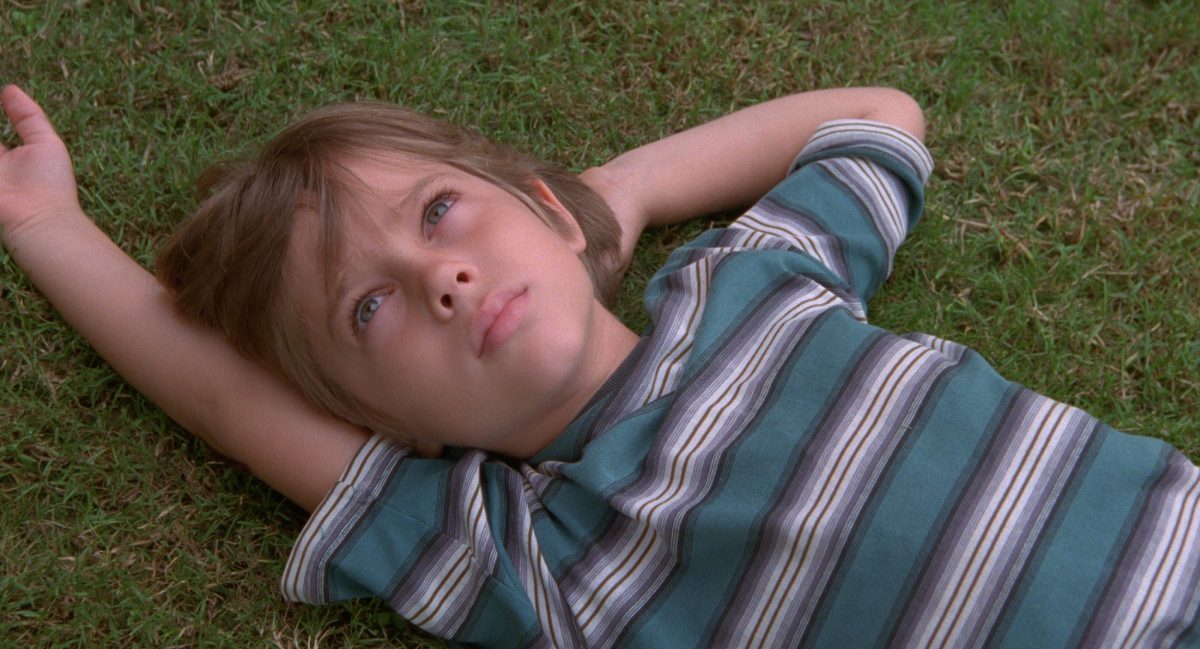
Along with our use of language and those nifty opposable thumbs, the thing that really distinguishes us humans is our awareness of our own mortality. We know that we’re going to die and that’s why reflecting on the passage of time makes us wistful. Looking at old photos—of ourselves, of our parents, of our children—can be a profoundly emotional experience. “Look at how young we all were,’’ we say, as though the passage of time has snuck up on us, as though we forgot to read the fine print.
It’s that quality—of nostalgia, of melancholy, of longing—that Richard Linklater has captured so perfectly in his groundbreaking Boyhood. The star of his film? Technically a great young actor named Ellar Coltrane, who plays Mason, the boy of the title. But, of course, the film’s true star is time itself. Linklater filmed Boyhood in his own hometown of Houston, Texas over the course of 12 years. When the film first starts, Mason is 6. By the time it ends, he is 18. The wonderful adult actors who play Mason’s estranged parents—Ethan Hawke and Patricia Arquette—age, too. Arquette’s Olivia gains (and then loses) some weight, marries twice, gets an advanced degree. Hawke’s Mason Sr., gets a little thicker in the middle and sheds some of his maddening (if endearing) man-child ways. But to watch Coltrane’s Mason go from chubby-cheeked child to lanky young adult (when his voice changes, you almost gasp), is an unbelievably profound and poignant experience.
Knowing this, Linklater doesn’t overplay his hand. He doesn’t feel a need to show us every milestone—first kiss, first fight, first heartbreak—or any of the things you might expect. Instead, he drops in on Mason’s life on average days—sometimes big things happen (like the day the family flees from Olivia’s second husband, who is abusive). And sometimes nothing much happens at all (a lazy trip to the lake with his father). What resonates most are the small, evocative moments, like when Mason and his sister Samantha (played by the excellent Lorelei Linklater, who is the director’s daughter) are bickering in the backseat of the car. “Put up the barrier!” Olivia bellows, from the front. A makeshift barrier is quickly assembled, but moments later, they are reaching behind it, to tickle each other and giggle.
When Mason first starts to develop an interest in photography and when he first begins espousing his grandiose, teenage theories on man’s overreliance on technology, we feel a strange surge of recognition and even pride. He was somewhat passively led around by his parents, as most children are. Now he’s developing a philosophy, a worldview of his own. That’s what growing up is.
Most serious films try to tell us something about life, but rarely has one done what Boyhood does—simply shown us a life, in all of its ordinary extraordinariness.
Boyhood opens Friday, August 1 in Baltimore.
